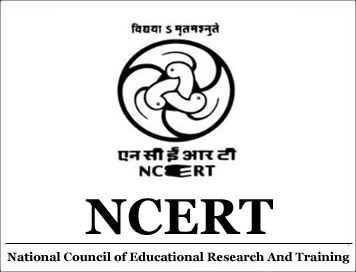(Download) NCERT Revised syllabus Of Psychology (Class 11 to 12 )
Rationale
Psychology is introduced as an elective subject at the higher secondary stage of school education. As a discipline, psychology specialises in the study of experiences, behaviours and mental processes of human beings within a socio-cultural and socio-historical context. This course purports to introduce the learners to the basic ideas, principles and methods in psychology so as to enable them to understand themselves and their social world better. The emphasis is put on creating interest and exposure needed by learners to develop their own knowledge base and understanding. The course deals with psychological knowledge and practices which are contextually rooted. It emphasises the complexity of behavioural processes and discourages simplistic cause-effect thinking. This is pursued by encouraging critical reasoning, allowing students to appreciate the role of cultural factors in behaviour, and illustrating how biology and experience shape behaviour. The course while developing an appreciation of subjectivity, also focuses on multiplicity of worldviews.
It is suggested that the teaching-learning processes should involve students in evolving their own understanding. Therefore, teaching of psychology should be based on the use of case studies, narratives, experiential exercises, analysis of common everyday experiences, etc.
Objectives
To develop appreciation about human behaviour and human mind in the context of learners’ immediate society and environment.
To develop in learners an appreciation of multidisciplinary nature of psychological knowledge and its applications in various aspects of life.
To enable learners to become perceptive, socially aware and self-reflective.
To facilitate students’ quest for personal growth and effectiveness, and to enable them to become responsive and responsible citizens.
CLASS XI
Semester I: Foundations of Psychology - I
(Total 90 Periods)
Unit I: What is Psychology?
(12 Periods)
The unit seeks to develop understanding and appreciation of psychology as a discipline, its evolution, its applications and its relationships with other sciences through appropriate and interesting examples and analysis of everyday experience .
What is psychology?; Popular notions about discipline of psychology; Understanding mind and behaviour; Evolution of psychology; Branches of psychology: Themes of research and applications; Psychology and other disciplines ; Psychologists at work ; Psychology in everyday life; Development of Psychology in India.
Unit II: Methods of Enquiry in Psychology
(18 Periods)
The objective of this unit is to discuss methods of enquiry for collecting psychological data.
Goals of psychological enquiry; Nature of psychological data;
Some important methods:
Observational, Experimental, Correlational, Survey, Psychological testing, Case
Study; Analysis of data; Limitations of psychological enquiry; Ethical issues.
Unit III: The Bases of Human Behaviour
(18 Periods)
The unit will focus on the role of biological and socio-cultural factors in the shaping of human behaviour.
Evolutionary perspective; Biological basis : Biological and cultural roots; Biology of behaviour:
Structure and functions of nervous system and endocrine system; Relationship of nervous system and endocrine system with behaviour and experience; Brain and behaviour; Heredity: Genes and behaviour; Cultural basis : Socio-cultural shaping of behaviour (e.g. family, community, faith, gender, caste, disability etc.); Socialisation , enculturation and acculturation.
Unit IV: Human Development
(20 Periods)
This unit deals with variations in development and the developmental tasks during the life span.
Meaning of development; Factors influencing development; Context of development; Overview of developmental stages: Infancy, Childhood, Challenges of Adolescence, Adulthood and Old age.
Unit V: Sensory, Attentional and Perceptual Processes
(22 Periods)
This unit aims at understanding how various sensory stimuli are received, attended to and given meaning.
Knowing the world ; Nature and varieties of stimulus; Sense modalities; Adaptation; Attentional processes; Selective and sustained attention ; Perceptual processes; The Perceiver; Principles of perceptual organisation; After images; Perception of space, depth and distance; Perceptual constancies; Illusions; Socio-cultural influences on perception.
